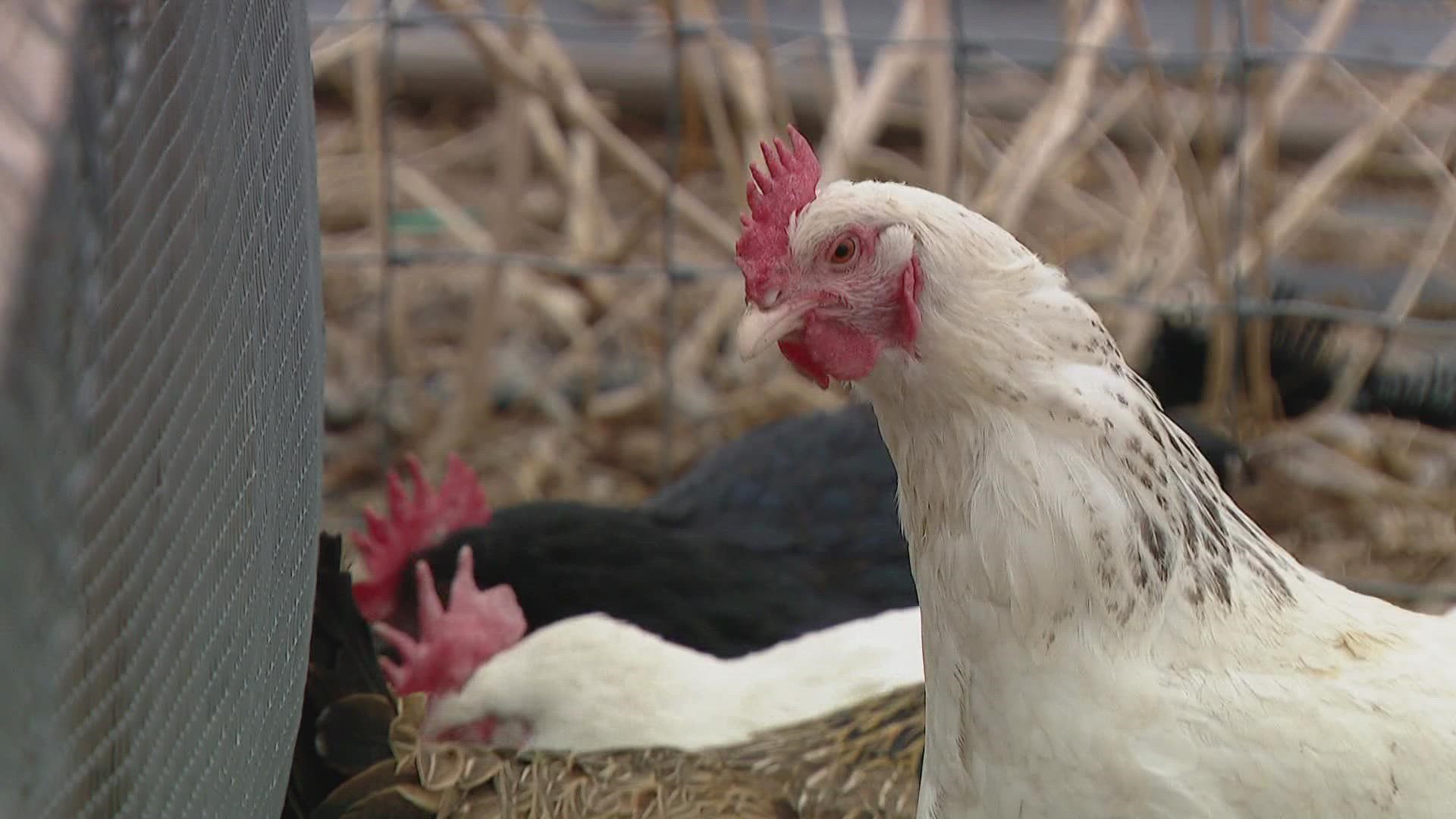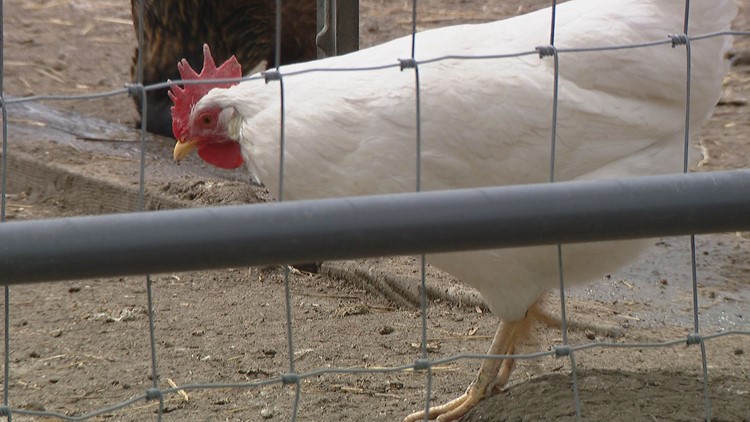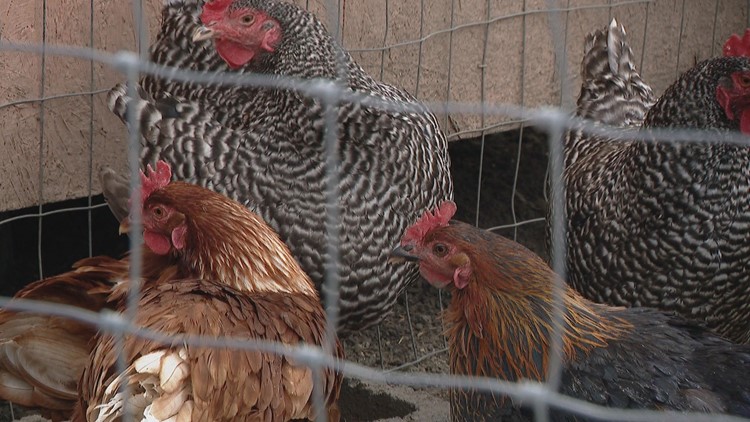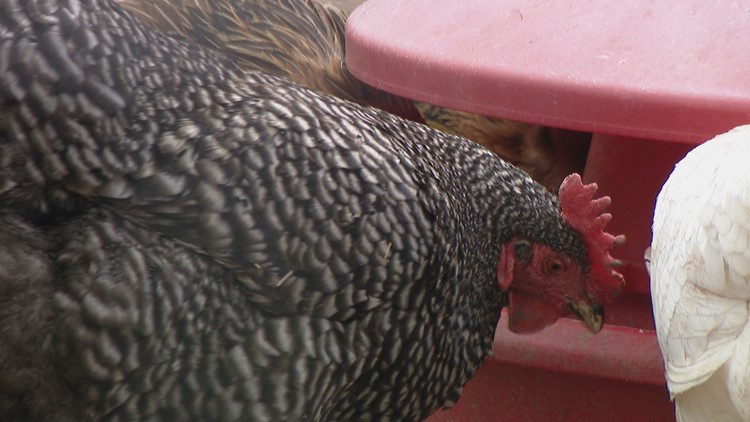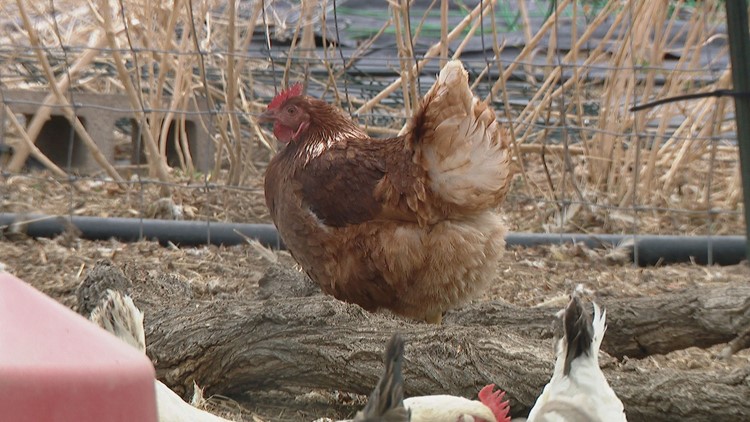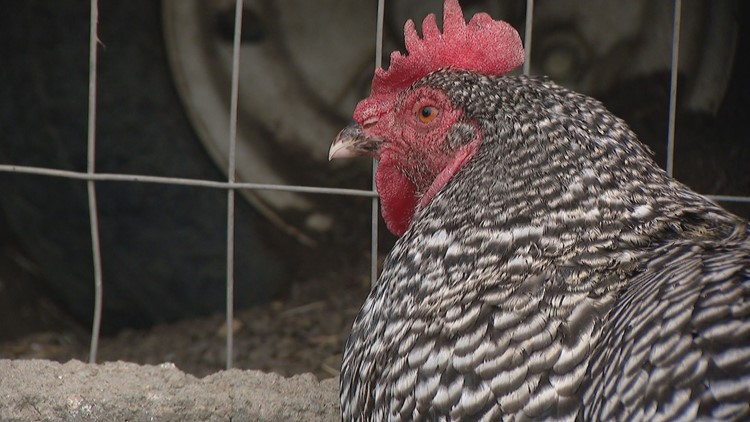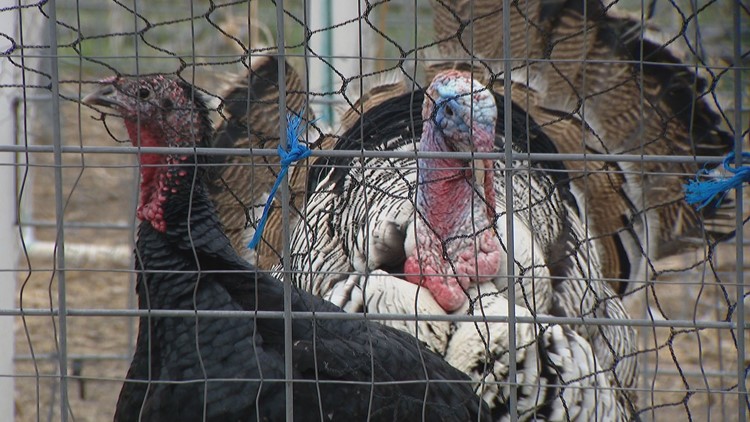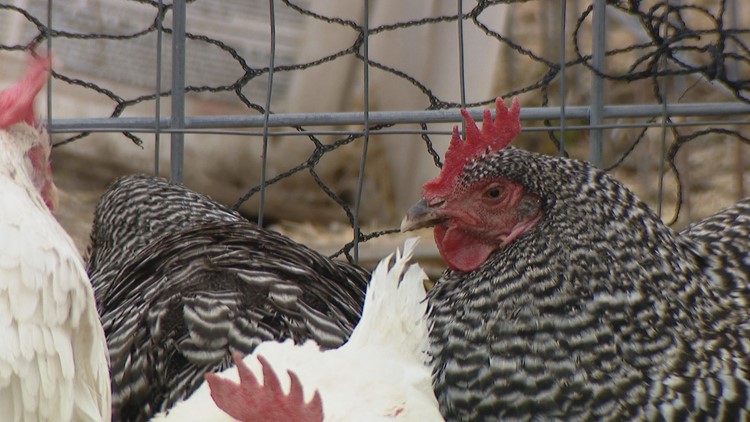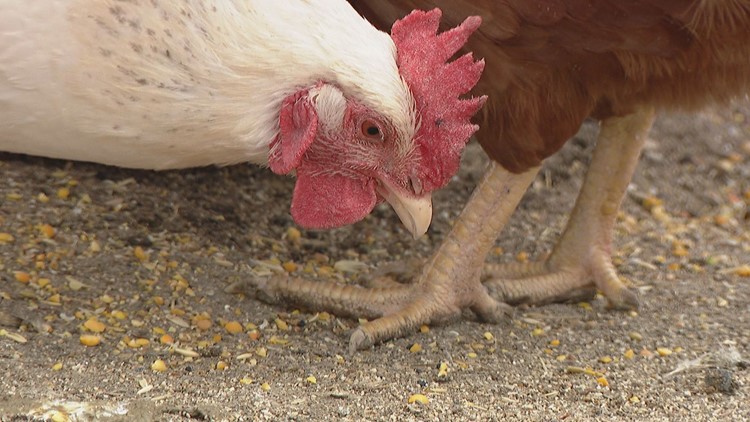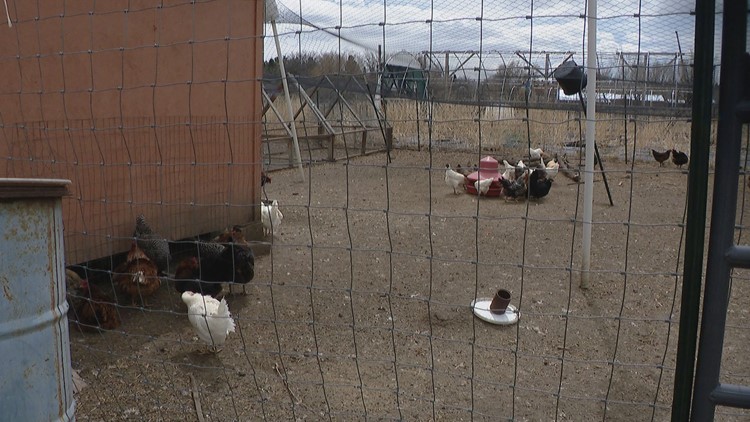DENVER — With a new avian influenza detected in both wild and domestic birds in Colorado, farmers in Colorado are hoping and preparing for the spread.
The Highly Pathogenic Avian Influenza (HPAI) was detected in the U.S. in February and has spread in wild birds in 31 states. More than 45 million domestic poultry and birds have been impacted, according Colorado State University.
Millions of birds have died across the U.S. recently because of the avian flu. Chickens, turkeys and water fowl are all at risk.
Amanda Weaver with 5 Fridges Farm in Wheat Ridge has a flock of about 100 chickens. They are a free-roaming flock with a fence and netting above to protect them from predators and other dangers.
This spring, one of her concerns is the new strain of avian flu that is highly contagious.
Weaver already has protections in place to keep her flock away from predatory birds. She hopes that will be enough to stop wild birds from engaging with her flock or also spreading their feces where they roam and eat.
Few options to protect flocks from avian flu, farmers say
"This is really what we worry about because of the avian flu coming through," Weaver said. "It’s all predator birds and migrating birds that when they poop, you don’t want any of the birds stepping in because that’s what can pass the flu around."
One of the main ways she is hoping to prevent transmission to her flock is by not participating in bird swaps. She is also choosing not to add to her flock unless the birds are newly born.
As the transmission continues to spread throughout the country, the impact may also be seen at the grocery store with higher prices. At a farm like 5 Fridges Farm with a smaller operation, it would mean less egg production or no egg production at all.
"It’s awful to think about," Weaver said. "That’s one of the realities in farming."
Weaver has not seen any changes in her flock and so far, they have been been infected. However, the first Colorado case was detected March 24 in wild birds in Sedgwick County. Since then, cases have been reported in wild birds in Denver, Morgan and El Paso counties and in a backyard flock in Pitkin County, according to the Colorado Department of Agriculture.
“Colorado poultry owners should immediately increase their biosecurity protocols to protect their flocks, including limiting exposure of domestic birds to wild birds and other poultry flocks and limiting introduction of new birds into flocks," said Dr. Maggie Baldwin, Colorado state veterinarian, in a news release last month.
Baldwin issued an emergency order March 31 suspending all poultry shows for 90 days. As a precaution, the Denver Zoo has moved its birds inside to protect them from the avian flu outbreak.
HPIA infections have a 90% to 100% mortality rate in chickens, according to the Centers for Disease Control and Prevention (CDC). Risk to humans is low, the CDC said.
Here's some information for bird owners from CSU and the state agriculture department on HPAI:
Signs of avian influenza in birds
- Extreme depression
- Difficulty breathing
- Decrease in feed or water intake
- Swelling or purple discoloration of head, eyelids, comb, wattle and hocks
- Decrease in egg production
- Sudden unexplained death
How is avian flu transmitted?
- Food traffic
- Secretions from the bird
- Contact with infected droppings
- Movement of sick birds
- Contaminated clothing and equipment
How to protect flocks from avian flu
- Cover coops and runs, and keep birds inside
- Wash your hands before entering a coop. Don't handle other people's birds.
- Wear dedicated flock clothing and shoes.
- Avoid feed stores and other places with poultry.
- Avoid parks and other places with waterfowl.
- Don't share equipment. Regularly disinfect equipment that comes in contact with poultry.
- Don't attract wild birds. Remove wild bird feeders.
- Feed birds in the coop. Clean up feed spills and remove standing water.
- Monitor your flock for signs of HPAI
How to report HPAI deaths in birds
- Report any suspicious disease events in poultry to the State Veterinarian's Office at 303-869-9130.
- If you have sick birds or birds that have died from unknown causes, CSU offers help at the Colorado Avian Health Call Line at 970-297-4008.
- For dead domestic birds, submit to the CSU Veterinary Diagnostic Laboratory in Fort Collins for free HPAI testing: 970-297-4008 or 970-297-1281.
- If you find three or more dead wild birds in a specific area within a two-week period or if you see live birds showing signs of disease, contact your local Colorado Parks and Wildlife office.
The U.S. Department of Agriculture has more tips and resources at its website for its Defend the Flock Program on biosecurity and signs of illness.
The Colorado Department of Agriculture held a webinar on April 6 that is available to watch here.
> Below: The Colorado Department of Agriculture map showing dates and locations of HPAI reports in the state:
SUGGESTED VIDEOS: Latest from 9NEWS

